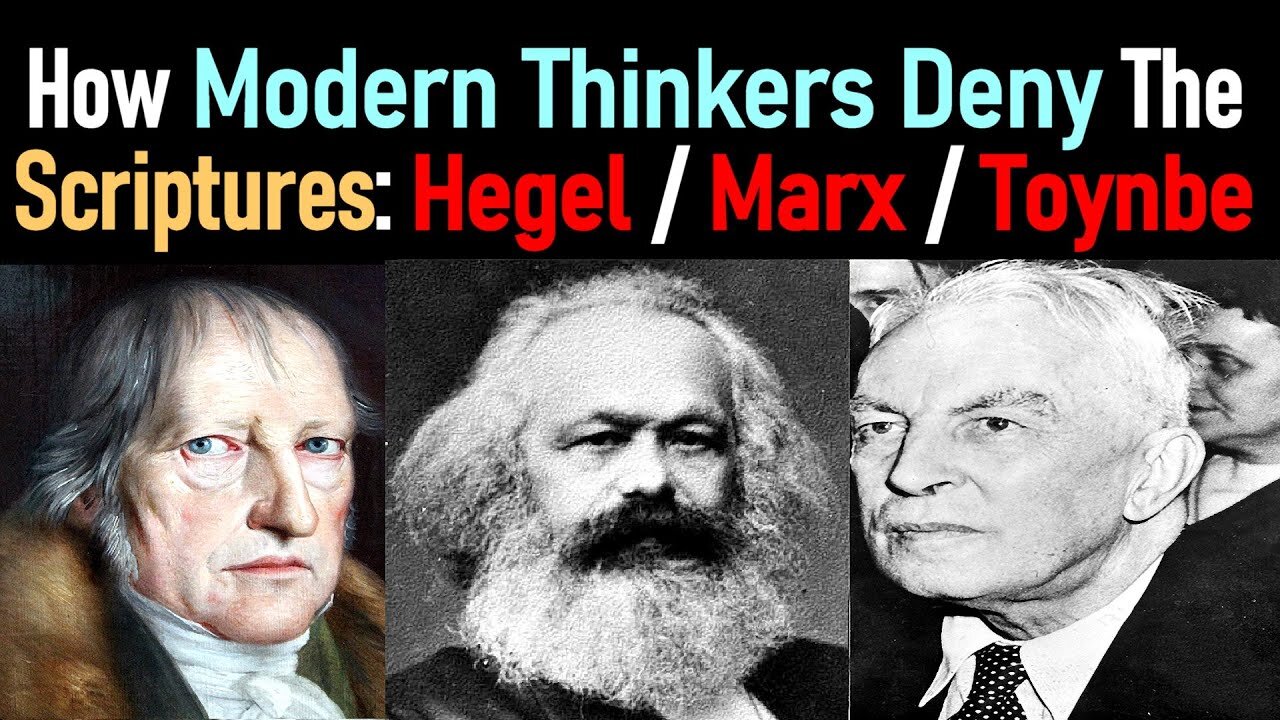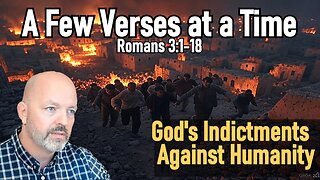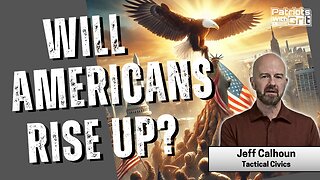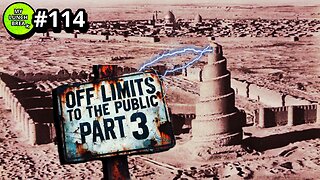Premium Only Content

How Modern Thinkers Deny the Scriptures: Hegel / Marx / Toynbe - Dr. C. Gregg Singer / Lecture
▶️TWITTER: https://twitter.com/RichMoo50267219
How Modern Thinkers Deny the Scriptures: Hegel / Marx / Toynbe - Dr. C. Gregg Singer / Lecture
▶️Battle for God and His Truth: http://battleforgodstruth.tumblr.com/
▶️My WordPress blog: https://sermonsandsongsdotorg.com/
Charles Gregg Singer was born in Philadelphia on June 3, 1910. His parents were Arthur Gregg and Edith Elizabeth Singer. He graduated magna cum laude from Haverford College in 1933 and received his Masters (1935) and Doctorate (1940) from the University of Pennsylvania. At one point during his years at the University, he served as chauffeur for Dr. J. Gresham Machen, when Machen was speaking on campus.
During World War II, Dr. Singer was the director of the War Manpower Commission in Illinois, and later was appointed to serve on the staff of the US Senate Commission investigating the attack on Pearl Harbor.
Dr. Singer was a highly skilled historian and an excellent teacher. His academic career included posts at Wheaton College, Salem College, the University of Pennsylvania, Belhaven College, Montreat-Anderson, Catawba College, Furman University, and the Atlanta School of Biblical Studies. He was also among the founding faculty at the Greenville Presbyterian Theological Seminary and he was teaching there at the time of his death, on March 22, 1999.
Dr. Singer knew the value of history for the Christian. The Christian faith is historically based, being particularly founded on the incarnation, life, death and resurrection of our Lord Jesus Christ, who is eternally the Second Person of the one Triune God. History matters, as it is the unveiling of God’s redemptive and providential plan.
John Calvin / Calvinism playlist: https://www.youtube.com/playlist?list=PL1D60D3A2D8DF224B
John Calvin - (1509-1564) French reformer and theologian
Born July 10, 1509 in Noyon, France, Jean Calvin was raised in a staunch Roman Catholic family. The local bishop employed Calvin's father as an administrator in the town's cathedral. The father, in turn, wanted John to become a priest. Because of close ties with the bishop and his noble family, John's playmates and classmates in Noyon (and later in Paris) were aristocratic and culturally influential in his early life
However, by 1527 Calvin had developed friendships with individuals who were reform-minded. These contacts set the stage for Calvin's eventual switch to the Reformed faith. Also, at this time Calvin's father advised him to study law rather than theology.
By 1528 Calvin moved to Orleans to study civil law. The following years found Calvin studying in various places and under various scholars, as he received a humanist education. By 1532 Calvin finished his law studies and also published his first book, a commentary on De Clementia by the Roman philosopher, Seneca. The following year Calvin fled Paris because of contacts with individuals who through lectures and writings opposed the Roman Catholic Church. It is thought that in 1533 Calvin experienced the sudden and unexpected conversion that he writes about in his foreword to his commentary on the Psalms.
For the next three years, Calvin lived in various places outside of France under various names. He studied on his own, preached, and began work on his first edition of the Institutes of the Christian Religion, an instant best seller. By 1536 Calvin had disengaged himself from the Roman Catholic Church and made plans to permanently leave France and go to Strasbourg. However, war had broken out between Francis I and Charles V, so Calvin decided to make a one-night detour to Geneva.
But Calvin's fame in Geneva preceded him. Farel, a local reformer, invited him to stay in Geneva and threatened him with God's anger if he did not. Thus began a long, difficult, yet ultimately fruitful relationship with that city. He began as a lecturer and preacher, but by 1538 was asked to leave because of theological conflicts. He went to Strasbourg until 1541. His stay there as a pastor to French refugees was so peaceful and happy that when in 1541 the Council of Geneva requested that he return to Geneva, he was emotionally torn. He wanted to stay in Strasbourg but felt a responsibility to return to Geneva. He did so and remained in Geneva until his death May 27, 1564. Those years were filled with lecturing, preaching, and the writing of commentaries, treatises, and various editions of the Institutes of the Christian Religion.
-
 21:28
21:28
Christian Sermons and Audio Books
17 days agoA Few Verses at a Time - Romans 3:1-18 - God's Indictments Against Humanity - Pastor Patrick Hines
2561 -
 34:27
34:27
The Connect: With Johnny Mitchell
11 hours ago $5.73 earnedCan He Stop Them? Inside Trumps War On Mexican Drug Cartels & The New Era Of Mexican Organized Crime
13.5K2 -
 2:33:15
2:33:15
Tundra Tactical
4 hours ago $4.68 earnedLuis Valdes Of GOA Joins The Worlds Okayest Firearms Live Stream!!!
14.9K -
 1:03:41
1:03:41
Man in America
12 hours agoAre Trump & Musk the COUNTER-ELITES? w/ Derrick Broze
43.6K24 -
 LIVE
LIVE
DLDAfterDark
3 hours ago $5.67 earnedDLD Live! SHTF Handguns! Which Would You Choose?
735 watching -
 1:50:38
1:50:38
Mally_Mouse
6 hours agoSaturday Shenanigans!! - Let's Play: Mario Party Jamboree
36.2K -
 1:13:00
1:13:00
Patriots With Grit
10 hours agoWill Americans Rise Up? | Jeff Calhoun
29.1K10 -
 14:55
14:55
Exploring With Nug
10 hours ago $9.92 earnedWe Found Semi Truck Containers While Searching for Missing Man!
47.6K7 -
 27:57
27:57
MYLUNCHBREAK CHANNEL PAGE
18 hours agoOff Limits to the Public - Pt 3
98K61 -
 38:07
38:07
Michael Franzese
10 hours agoLeaving Organized Crime and Uncovering Mob in Politics: Tudor Dixon and Michael Franzese
85.5K15